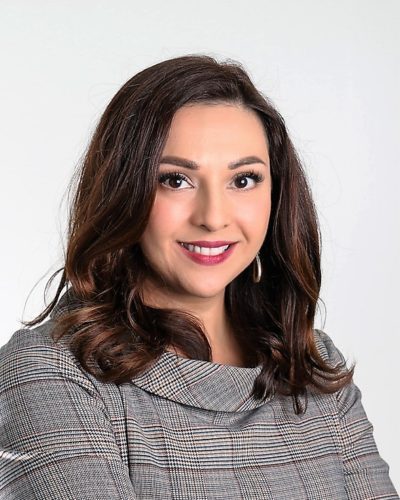 Magda Herrera is joining Texas Law as Chief Development Officer starting on January 4, 2021. It’s a true homecoming for the Double Longhorn who graduated from Texas Law in 2005 after earning her Bachelor of Arts from UT Austin in 2002, majoring in Government. She was a Public Interest Law Fellow in 2003 and 2004, and won a 2005 UT Co-Op Public Interest Award.
Magda Herrera is joining Texas Law as Chief Development Officer starting on January 4, 2021. It’s a true homecoming for the Double Longhorn who graduated from Texas Law in 2005 after earning her Bachelor of Arts from UT Austin in 2002, majoring in Government. She was a Public Interest Law Fellow in 2003 and 2004, and won a 2005 UT Co-Op Public Interest Award.
Herrera comes back to the Capitol City after eight successful, record-breaking years at the University of Houston and the University of Houston Law Center, including the last four years serving as the Senior Director of Advancement. In that role, she raised nearly $95M for the Law Center’s Capital Campaign, well above their fundraising target.
That kind of leadership has always been a hallmark of Herrera’s career. In only her second position after law school, she served as Executive Director of the Hispanic National Bar Foundation in Washington, D.C.
We spoke with Ms. Herrera as she gets ready to wear burnt orange once again.
Christopher Roberts: First things first: Welcome back to Texas Law!
Magda Herrera: Thank you so much! I’m happy to be back.
CR: I am sure much of what you find here will be new, and yet much will be familiar. What are some of your fondest memories of the school and the professors?
MH: The best thing about my law school experience was the people—the friends I made, the faculty members who taught my favorite classes, and the mentors that I found during my summer clerkships. Attending Texas Law widened my universe and enabled me to live in cities around the US, working on all kinds of issues from community development, civil rights, labor law, and communications policy. Even now, some of my closest friends are people I met in law school on the first day of orientation, through student organizations like CHLSA, and while studying for the bar. I cherish those memories and look forward to making new ones as a member of the Texas Law team.
CR: For those readers who don’t quite know, what exactly is a Chief Development Officer?
MH: A Chief Development Officer (CDO) is someone who is responsible for creating a culture of philanthropy at an organization. By building relationships, securing gifts, and overseeing a strategy to ensure that an institution like Texas Law has the resources it needs to meet its mission. In our case, it is about educating alumni and the wider community about the impact they can make by investing in the Law School and helping them find avenues to reengage and support the institution that helped them become successful.
CR: What excites you about doing this kind of work?
MH: Using my law degree and 14 years of experience in nonprofit management and fundraising to support my alma mater is my dream job. Moreover, it’s fun.
There is a common misconception that fundraisers spend their days trying to convince people to give them money. That is not the reality. Fundraising is about finding the people who care about what your organization is doing — its needs and its impact — and connecting them to that mission. There is a lot of joy in this work!
My favorite part of the job is getting to know people and their passions and interests, and finding ways to help them realize their vision for a better future. People give for so many different reasons: because they had a wonderful experience, because they feel grateful and want to pay it forward, because they want to make something better, or because they want to leave a legacy at an institution or program that will positively influence generations to come. It is exciting to work with them to find the best philanthropic tools to accomplish their goals.
CR: You really do make it sound awesome! A year from now, when we look back at the accomplishments of 2021—especially given all the unknowns after a most unusual 2020—what do you hope to be able to talk about?
MH: We are living in an unprecedented time. The landscape of philanthropy is changing as well. Traditional models of fundraising and donor demographics are evolving. It is critical that Texas Law creates an inclusive model for engagement, mentorship, and giving. The same old strategies won’t be enough to compete in a dynamic environment. So, my focus for 2021 will be to expand the base of support for the law school so that more alumni feel invested in the future of this institution and proud to support the next generation of scholars, entrepreneurs, and advocates.
I would also like to help build bridges between the law school and the wider university to attract funding for collaborative, interdisciplinary programs. The future is wide open for schools like Texas Law that can be visionary and impact the community through education, advocacy, and thought leadership.
CR: That is all wonderful. I know we’re all excited to see it happen—and thrilled to have you here!
MH: I’m thrilled to be here and to get started.
